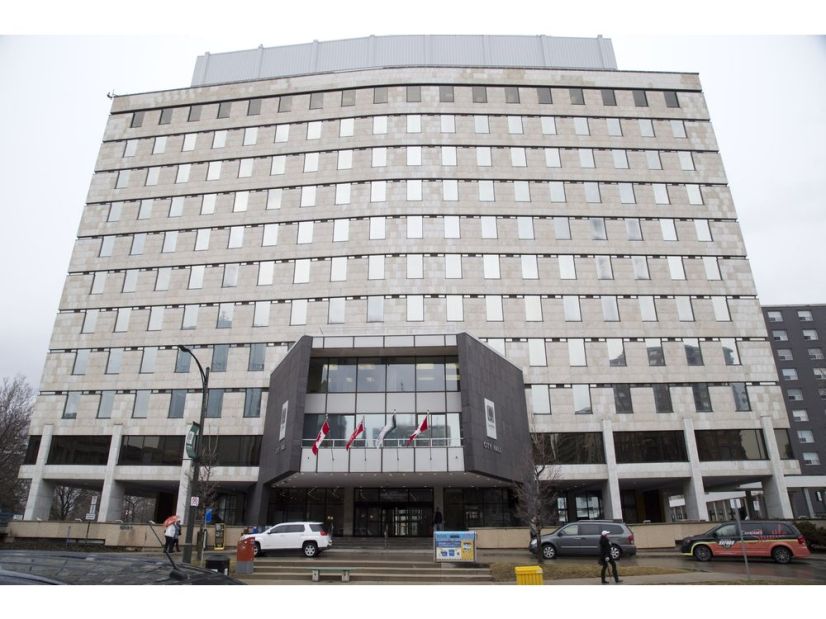Abandoning forced retirement at age 60 within the London fire department and reinstating two retirees may not end the local dispute.
London district human rights officer Walter Burns said Friday further conciliation talks with the city may be necessary in light of board of control’s action earlier this week.
The board has recommended city council, which meets Monday, reinstate former platoon chief Fred Holmes, now 63, and former stores keeper Fred McCullagh, 62. However, it has not agreed to pay the two men compensation in lost pay from the time of retirement to their reinstatement.
Holmes retired in November, 1978, and McCullagh in May, 1980—both under formal protest. They took their cases to the human rights commission arguing discrimination on the sole basis of age.
The recommendation to give both men back their jobs—on condition they pass a medical—came after a meeting between the retirees, city officials and the human rights commission.
However, Burns said if the city’s position is reinstatement only, “it’s obvious there needs to be more conciliation.” Compensation, he said, is part of the “package”.
In a supreme court of Canada ruling in February, two Etobicoke firefighters were ordered reinstated when the court decided a private contract could not override the province’s human rights code. (The code prohibits discrimination on the basis of age—up to 65.) The borough was required to give them back pay.
Friday, Mayor Al Gleeson said the issue of reinstatement is quite clear. However, “the other issue of compensation isn’t that clear.”
Gleeson said back pay and other compensation for Holmes and McCullagh has been estimated at $170,000.
Human rights executive officer Howard Jones of Toronto said if the city and human rights representatives fail to reach an agreement, the commission will decide if the settlement is satisfactory or if it should go before an independent inquiry board.
Such a hearing—usually chaired by a law school professor—would order a settlement. And should one party still object, the last resort is the courts.
Jones said no time constraints are put on the conciliation process “as long as there is any promise that further reconciliation will be helpful.”
McCullagh, a fire department civilian employee for 16 years, estimated his loss at approximately $38,000 after deducting pension and unemployment insurance benefits received since May, 1980.
Based on projected income to 1983, he figures his current pension of $5,100 annually would more than double to $11,500. Old age and Canada pensions don’t come into effect until he reaches 65 and he must now pay his own health insurance and other benefits.
McCullagh has applied for about 30 jobs since retirement but hasn’t found one.
“I know there will be animosity (on his return to work) but I think I can overcome that,” he said this week. “They (firemen) feel I’m going to knock someone out of work.”
But he’s insistent he won’t go back until he is fully compensated for being forced to retire two years ago. If he was stopped on the highway for speeding, McCullagh reasoned, he would be forced to pay a fine for breaking the law.”
Since the supreme court ruled the city broke the law by forcing him to retire, he argued, it should pay the fine of compensation.
Ironically, McCullagh’s next door neighbor is Gord Sturdy, president of the London Firefighters Association and a staunch supporter of 60-an-out for firemen—a provision won by the union in 1975. The two men never discuss the issue, said McCullagh.
“Maybe the general public thinks I’m nuts. I feel pretty strongly about it.”
Source: London Free Press
Abandoning forced retirement at age 60 within the London fire department and reinstating two retirees may not end the local dispute.
London district human rights officer Walter Burns said Friday further conciliation talks with the city may be necessary in light of board of control’s action earlier this week.
The board has recommended city council, which meets Monday, reinstate former platoon chief Fred Holmes, now 63, and former stores keeper Fred McCullagh, 62. However, it has not agreed to pay the two men compensation in lost pay from the time of retirement to their reinstatement.
Holmes retired in November, 1978, and McCullagh in May, 1980—both under formal protest. They took their cases to the human rights commission arguing discrimination on the sole basis of age.
The recommendation to give both men back their jobs—on condition they pass a medical—came after a meeting between the retirees, city officials and the human rights commission.
However, Burns said if the city’s position is reinstatement only, “it’s obvious there needs to be more conciliation.” Compensation, he said, is part of the “package”.
In a supreme court of Canada ruling in February, two Etobicoke firefighters were ordered reinstated when the court decided a private contract could not override the province’s human rights code. (The code prohibits discrimination on the basis of age—up to 65.) The borough was required to give them back pay.
Friday, Mayor Al Gleeson said the issue of reinstatement is quite clear. However, “the other issue of compensation isn’t that clear.”
Gleeson said back pay and other compensation for Holmes and McCullagh has been estimated at $170,000.
Human rights executive officer Howard Jones of Toronto said if the city and human rights representatives fail to reach an agreement, the commission will decide if the settlement is satisfactory or if it should go before an independent inquiry board.
Such a hearing—usually chaired by a law school professor—would order a settlement. And should one party still object, the last resort is the courts.
Jones said no time constraints are put on the conciliation process “as long as there is any promise that further reconciliation will be helpful.”
McCullagh, a fire department civilian employee for 16 years, estimated his loss at approximately $38,000 after deducting pension and unemployment insurance benefits received since May, 1980.
Based on projected income to 1983, he figures his current pension of $5,100 annually would more than double to $11,500. Old age and Canada pensions don’t come into effect until he reaches 65 and he must now pay his own health insurance and other benefits.
McCullagh has applied for about 30 jobs since retirement but hasn’t found one.
“I know there will be animosity (on his return to work) but I think I can overcome that,” he said this week. “They (firemen) feel I’m going to knock someone out of work.”
But he’s insistent he won’t go back until he is fully compensated for being forced to retire two years ago. If he was stopped on the highway for speeding, McCullagh reasoned, he would be forced to pay a fine for breaking the law.”
Since the supreme court ruled the city broke the law by forcing him to retire, he argued, it should pay the fine of compensation.
Ironically, McCullagh’s next door neighbor is Gord Sturdy, president of the London Firefighters Association and a staunch supporter of 60-an-out for firemen—a provision won by the union in 1975. The two men never discuss the issue, said McCullagh.
“Maybe the general public thinks I’m nuts. I feel pretty strongly about it.”
Source: London Free Press







